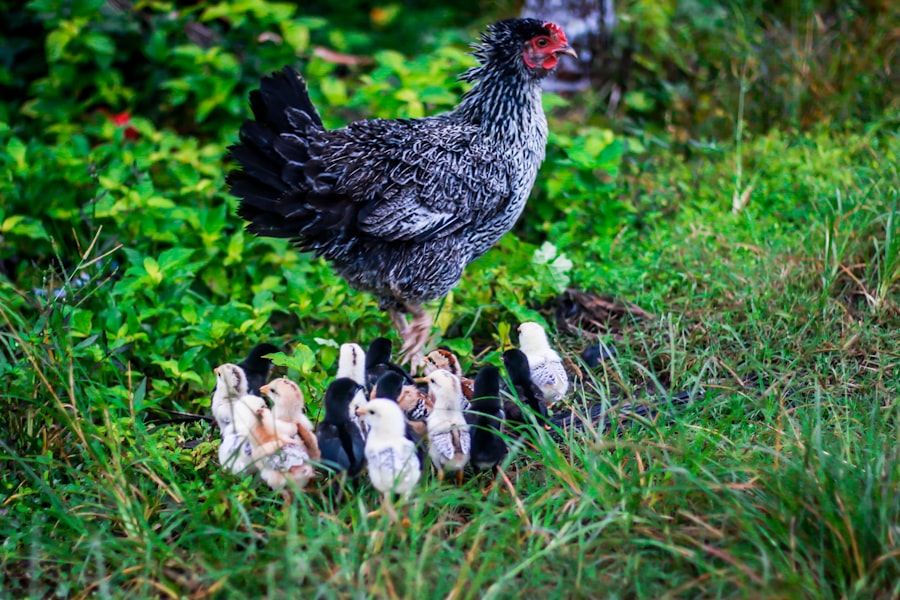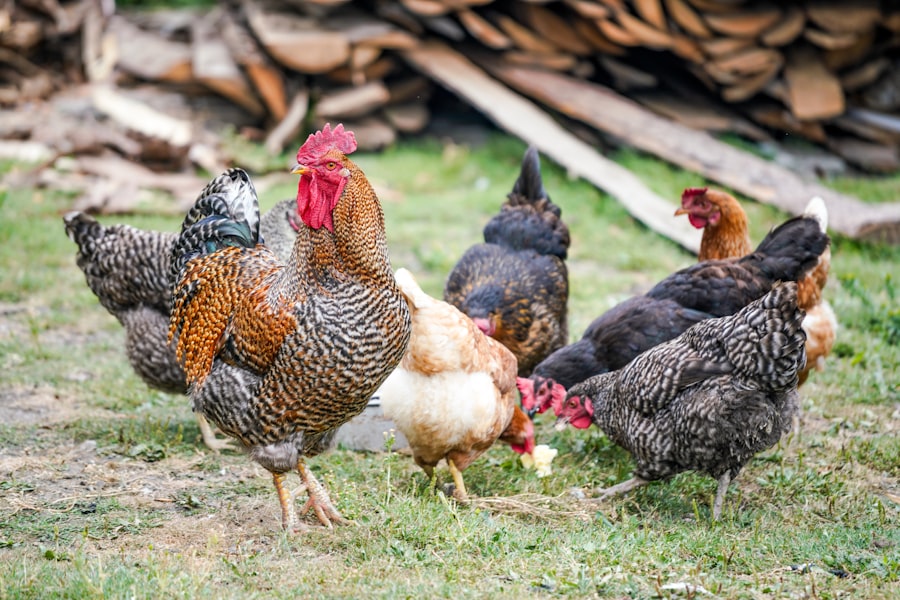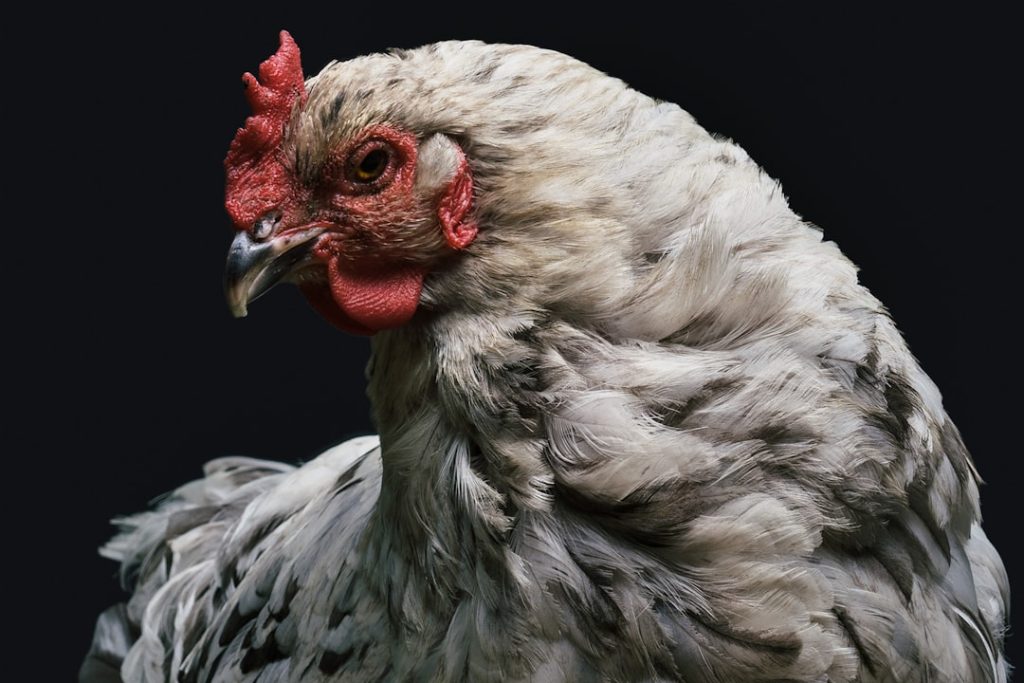Chickens are social creatures that flourish in group settings. They possess a sophisticated social hierarchy and interact through diverse vocalizations and body language. Comprehending their behavior is essential for creating a healthy and stimulating environment.
Chickens exhibit innate tendencies to search for food, engage in dust bathing, and seek elevated perches for nighttime rest. Within the flock, they establish a dominance hierarchy, which can potentially result in aggressive behavior if not properly managed. These birds demonstrate a high level of curiosity, actively exploring their environment to fulfill their natural instincts.
Chickens are also remarkably intelligent, capable of recognizing their caretakers and responding to training. By gaining insight into their behavioral patterns, chicken keepers can design living spaces that address both the physical and psychological requirements of these birds, ultimately promoting their well-being and contentment.
Table of Contents
- 1 Providing Enrichment Activities
- 2 Rotating their Environment
- 3 Social Interaction
- 4 Introducing Novel Objects
- 5 Creating a Foraging Area
- 6 Providing a Balanced Diet
- 7 FAQs
- 7.1 What are some signs that chickens are bored?
- 7.2 Why is it important to prevent boredom in chickens?
- 7.3 What are some ways to keep chickens from getting bored?
- 7.4 Are there specific toys or activities that can help prevent boredom in chickens?
- 7.5 How much space do chickens need to prevent boredom?
Key Takeaways
- Chickens are social animals and have a complex social structure within their flock.
- Enrichment activities such as hanging treats or providing toys can help keep chickens mentally stimulated and prevent boredom.
- Rotating a chicken’s environment can prevent the buildup of parasites and pathogens, as well as provide new areas for foraging and exploration.
- Social interaction is important for chickens, and they thrive in a flock environment where they can establish pecking orders and form bonds with other chickens.
- Introducing novel objects such as mirrors or new perches can provide mental stimulation and prevent boredom in chickens.
- Creating a foraging area with natural materials and hiding treats can encourage natural foraging behaviors and keep chickens active and engaged.
- A balanced diet for chickens should include a mix of grains, greens, and protein sources to ensure they receive all the necessary nutrients for optimal health.
Providing Enrichment Activities
Enrichment activities are essential for keeping chickens mentally and physically stimulated. Boredom can lead to destructive behaviors and even health issues in chickens. Providing enrichment activities such as hanging treats, perches, and toys can help alleviate boredom and encourage natural behaviors.
Hanging treats such as cabbage or corn on a string can provide entertainment and encourage foraging behavior. Perches at different heights can give chickens a sense of security and encourage them to roost, which is a natural behavior for chickens. Toys such as mirrors or hanging objects can also provide mental stimulation for chickens.
They are naturally curious animals and will investigate new objects in their environment. Providing enrichment activities not only keeps chickens entertained but also promotes physical activity and reduces stress. It is important to rotate enrichment activities regularly to keep the chickens engaged and prevent them from becoming bored with their surroundings.
Rotating their Environment

Rotating the chickens’ environment is important for their physical and mental well-being. Chickens benefit from having access to fresh grass, bugs, and other natural elements in their environment. Rotating their outdoor space allows them to forage for new food sources and prevents the ground from becoming depleted of nutrients.
It also helps to reduce the build-up of parasites and pathogens in the soil, which can be harmful to the chickens’ health. Rotating the environment also prevents the chickens from becoming bored with their surroundings. It gives them new areas to explore and keeps them mentally stimulated.
Additionally, rotating the environment can help prevent overgrazing and soil erosion, leading to a healthier and more sustainable outdoor space for the chickens.
Chickens are highly social animals that thrive in a flock environment. Social interaction is crucial for their well-being, as it allows them to establish a pecking order, communicate with each other, and engage in natural behaviors such as dust bathing and foraging. It is important to provide chickens with ample space to interact with each other and establish their social hierarchy.
Introducing new chickens to the flock should be done gradually to prevent aggression and bullying. Providing multiple feeding and watering stations can also help reduce competition and promote peaceful social interactions. Additionally, spending time with the chickens and observing their behavior can help identify any issues within the flock and address them accordingly.
Introducing Novel Objects
Chickens are naturally curious animals that enjoy investigating new objects in their environment. Introducing novel objects such as hanging toys, mirrors, or even simple items like cardboard boxes can provide mental stimulation for the chickens. These objects can encourage natural behaviors such as pecking, scratching, and exploring, which are essential for their well-being.
Novel objects can also help reduce boredom and prevent destructive behaviors in chickens. It is important to monitor the chickens’ reaction to new objects and ensure that they are safe for them to interact with. Introducing novel objects regularly can keep the chickens engaged and prevent them from becoming bored with their surroundings.
Creating a Foraging Area

Foraging is a natural behavior for chickens, as they spend a significant amount of time searching for food in the wild. Creating a foraging area in their environment can provide mental stimulation and encourage natural behaviors. Scatter feeding or hiding treats in the outdoor space can mimic the act of foraging for food in the wild.
A foraging area can also provide physical exercise for the chickens as they search for food sources. It is important to provide a variety of treats such as fruits, vegetables, and insects to keep the chickens engaged in foraging activities. Creating a foraging area not only promotes natural behaviors but also helps reduce boredom and stress in the chickens.
Providing a Balanced Diet
A balanced diet is essential for the overall health and well-being of chickens. A diet that is rich in nutrients such as protein, vitamins, and minerals is crucial for supporting their immune system, promoting healthy growth, and maintaining strong egg production. A balanced diet for chickens typically consists of a combination of commercial feed, grains, fruits, vegetables, and occasional treats such as mealworms or kitchen scraps.
It is important to provide access to fresh water at all times to prevent dehydration, especially during hot weather. Additionally, providing access to grit is essential for chickens to aid in digestion by grinding up food in their gizzards. Monitoring the chickens’ diet and adjusting it based on their age, breed, and activity level is important for maintaining their overall health.
In conclusion, understanding chicken behavior is crucial for providing them with a healthy and enriching environment. By providing enrichment activities, rotating their environment, promoting social interaction, introducing novel objects, creating a foraging area, and providing a balanced diet, chicken owners can ensure that their birds are happy, healthy, and thriving. Taking the time to understand and meet the needs of chickens will not only benefit their well-being but also enhance the overall experience of keeping these fascinating animals.
If you’re looking for ways to keep your chickens from getting bored, you may also be interested in learning about what to feed ducks. Check out this article on what to feed ducks to ensure that your feathered friends are getting the proper nutrition and variety in their diet.
FAQs
What are some signs that chickens are bored?
Chickens that are bored may exhibit behaviors such as feather pecking, excessive vocalization, pacing, or aggression towards other chickens. They may also show a lack of interest in foraging or exploring their environment.
Why is it important to prevent boredom in chickens?
Preventing boredom in chickens is important for their overall well-being and health. Boredom can lead to stress, aggression, and other negative behaviors. Keeping chickens engaged and stimulated can also improve egg production and overall happiness.
What are some ways to keep chickens from getting bored?
Some ways to keep chickens from getting bored include providing them with a spacious and enriching environment, offering a variety of perches and roosts, providing toys and objects for pecking and scratching, and allowing them to free-range or explore new areas.
Are there specific toys or activities that can help prevent boredom in chickens?
Yes, there are specific toys and activities that can help prevent boredom in chickens. These can include hanging treats, mirrors, hanging vegetables, and puzzle feeders. Additionally, providing access to dust baths and natural foraging opportunities can also keep chickens entertained.
How much space do chickens need to prevent boredom?
Chickens need a minimum of 2-3 square feet of space per bird in the coop, and at least 8-10 square feet per bird in an outdoor run or free-range area. Providing ample space for chickens to move around and explore can help prevent boredom and reduce stress.
Meet Walter, the feathered-friend fanatic of Florida! Nestled in the sunshine state, Walter struts through life with his feathered companions, clucking his way to happiness. With a coop that’s fancier than a five-star hotel, he’s the Don Juan of the chicken world. When he’s not teaching his hens to do the cha-cha, you’ll find him in a heated debate with his prized rooster, Sir Clucks-a-Lot. Walter’s poultry passion is no yolk; he’s the sunny-side-up guy you never knew you needed in your flock of friends!







